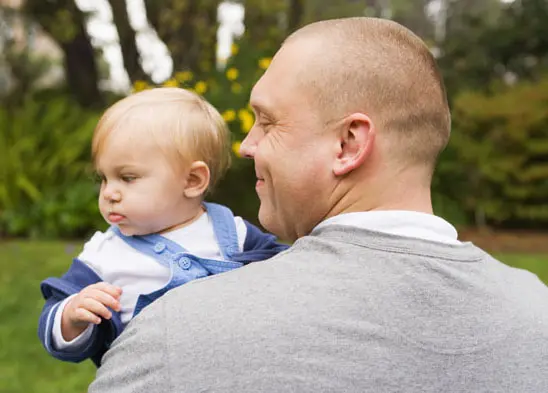Darren is a frustrated father of a two-year-old. You might be thinking, Yeah, so? That’s normal. In many ways, it is normal, and it’s easy to understand why parents came up with the phrase, “terrible twos.”
Many young children go through that phase where they need to test their parents on just about everything. Young kids enjoy exploring and discovering; that’s an important aspect of every two-year-old’s development. And part of that exploration is testing your boundaries to see how you’ll respond. Maybe he runs away when you tell him to “Come here,” or he takes his cup of crackers into the living room after you’ve told him not to.
Sure, there’s some disobedience there that needs to be addressed and shaped over time. It’s a process, for sure. But don’t forget what else is going on:
He’s checking to see if you mean what you say.
The good news is that these years don’t have to be terrible—or at least you can help minimize the difficulties. It will require a commitment to consistency in what you say and what you do, and it will go much better if you and your child’s mother are both taking the same approach.
Dad, you need to back up your words with actions the first time your child crosses the line. Decide with your child’s mother on the best course of discipline. It could mean putting the child in time out, taking away a privilege, or some other form of correction. But whatever you decide, get down on your child’s level—eye-to-eye—talk about what he did wrong, and include a hug as well.
This may sound simple, but it definitely isn’t easy.
It’s actually a lot of work because two-year-olds rarely disobey at a convenient time for you. If you’re feeling tired at the end of a long day, or if your child keeps disobeying you over and over, then it’s tough to bring yourself to stop what you’re doing, get up from your chair, go to where the child is, and deal with the problem in a constructive way. It’s a lot easier to just yell at him from across the room.
But if you don’t follow through, it teaches him that you don’t really mean what you say, and he’s likely to keep testing you over and over. Too often, dads let that go on and on until they reach a boiling point. Then they deal with the child out of anger and frustration rather than doing what’s most appropriate in the situation.
So then, if it’s important to follow through on what we say, doesn’t that make what we say crucial also? Definitely. There are different approaches to parenting that provide coaching for this. Maybe there’s already one you’re using, and maybe that’s working well or maybe you need to refresh your memory about how it’s supposed to work.
One approach worth mentioning briefly is from the Love & Logic Institute and authors Foster Cline and Jim Fay:
Use thinking words.
As an alternative to the commands, threats, and anger that many of us are so accustomed to using, the thinking words approach places responsibility on the child for thinking and making decisions, and often comes in the form of a question that offers the child a choice. That gives her a sense of control over the situation, but dad, you’re really in control since you’re the one who gave her the options—and you did it in a way that, no matter which way she goes, you’re fine with either outcome.
For example, you might be tempted to say: “You put your coat on now!” The child will probably throw a fit, and now you’re the one scrambling to figure out how to handle it. Instead, you could calmly ask, “Would you rather carry you coat, or wear it?” Here, everyone is more likely to stay calm, the child is doing the thinking and the choosing, and you can live with either choice.
Other examples:
“Are you going to put you boots on now or in the car?”
“Would you rather play quietly in front of the TV or be noisy in your room?”
“You may eat what is served now or wait and see if the next meal is more appealing.”
Once again, this is one approach to parenting that’s a bit more involved than simply giving your children choices, but it’s worth checking out if you’re struggling to deal with your preschooler in a calm and constructive way.
Bottom line: Your kids need to know that you mean what you say, and that you’ll follow through on what you expect from them. If they can come to understand that when they’re still in diapers, they’ll grow into it and be comfortable with it by the time they get their driver’s license.
What’s your #1 tip for a dad who’s in the middle of his child’s “terrible twos”? Share your insights and connect with other dads at our Facebook page.
Action Points & Questions for Reflection and Discussion:
- If you aren’t already, make time for lots of fun with your child. A close bond will serve you well when problems arise.
- How are each of your kids different from each other in their desires to test your boundaries?
- Have you established a parenting plan that you and your kids’ mom believe in and have agreed to follow? Check in with her about how it’s working and whether any adjustments are needed.
- When is it most difficult for you to follow through with something you’ve said to a child? Is it ever OK to not keep a promise?
- When you’re in the middle of dealing with a difficult issue with a child, think about the future adult you’re raising that child to become. How can you actions today benefit him or her 20 years from now?


